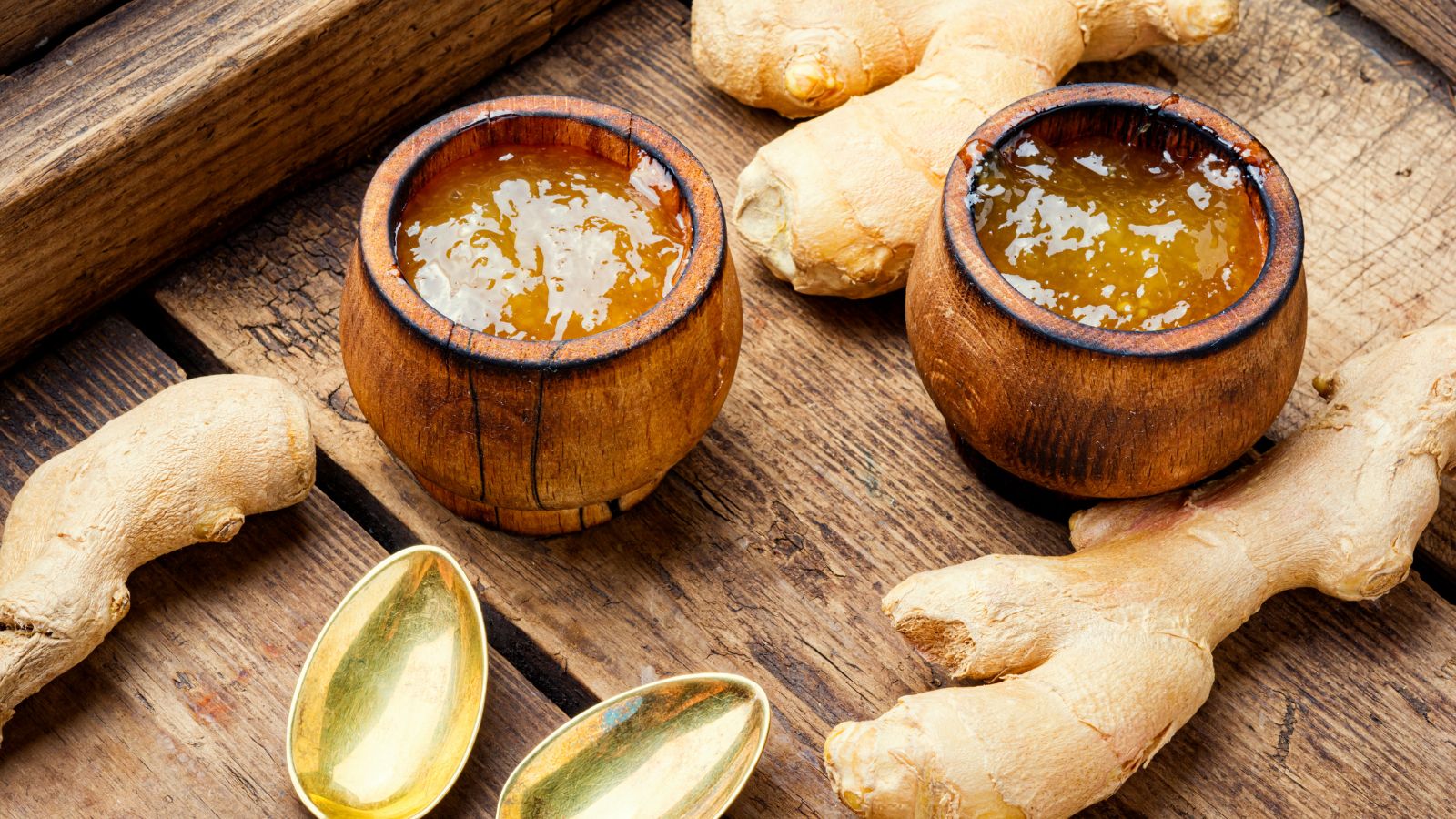
Does Ginger Tea Have Caffeine? Here’s the Real Answer
Photo Credit: Canva Pro
Herbal drinks like ginger tea are very popular because they taste great and are good for you. Many people are curious, does ginger tea have caffeine? Or can it change how well you sleep and feel energetic?
This article talks about ginger tea and answers some common questions, like what it does to your body, when to drink it, and who shouldn't. If you want something natural that doesn't have caffeine, ginger tea might be a good choice.
Does Ginger Tea Have Caffeine?
Photo Credit: Canva Pro
Does ginger tea have caffeine? Ginger tea is a herbal tea made from ginger root, a spice known for its strong flavor and numerous health benefits.
So, the short answer is no, ginger tea does not contain caffeine. Unlike green and black tea, this one is not made from Camellia sinensis tea leaves. Instead, it is made from ginger.
What’s in Ginger Tea: Herbal Composition Explained
Boiling water is added to ginger slices or grated raw ginger to make ginger tea. Since it uses only ginger, it doesn't have any caffeine unless it's mixed with something else.
-
Caffeine Source: Black tea, green tea, and other teas from the Camellia sinensis plant are the only ones that contain caffeine.
-
Ginger Root: Tea made from pure ginger root doesn't have any caffeine in it.
-
Mixed Blends: Green tea or black tea may be added to particular tea blends to make them more caffeinated.
-
Tea Bags: Check the ingredients—some tea bags have ginger in them along with tea leaves that contain caffeine.
Why Ginger Tea Is a Great Caffeine-Free Alternative
If you don't want to drink coffee, ginger tea is a great alternative. It warms you up and gives you energy without making your nervous system work harder.
-
Great for Evenings: Ginger tea is nice at any time of the day, even before bed.
-
Caffeine-Free Lifestyle: This is great for people who can't have caffeine because they are pregnant, have high blood pressure, or have trouble sleeping.
-
Natural Energy: Ginger may contribute to a sense of energy by reducing inflammation, though its direct effect on circulation is not conclusively established in scientific literature.
-
Herbal Simplicity: Just fresh ginger and hot water are all you need to make your own ginger tea.
Will Ginger Tea Keep You Awake?
Photo Credit: Canva Pro
Some people wonder if drinking ginger tea might make it hard to fall asleep. Ginger does help you stay awake and subtly give you energy, but it doesn't work like caffeine. It's more about making your immune system and digestive system stronger, especially if you eat it at night.
The Truth About Ginger and Alertness
Some users report feeling more alert after consuming ginger, though scientific studies do not classify it as a central nervous system stimulant. However, it's not a stimulant. It naturally boosts energy by making the blood flow better and helping the digestive system.
-
Natural Energy Boost: Ginger can make you feel more energized because it speeds up your metabolism and blood flow.
-
Warming Effect: It slightly raises body temperature, which makes you feel "awake."
-
Mood Balance: It may help you focus and see things more clearly because it has antioxidant properties.
-
Not a Stimulant: Like green tea or coffee, it won't make your heart beat faster or give you the shakes.
Can Ginger Help With Sleep Instead?
While ginger is not a stimulant, its potential to ease gastrointestinal discomfort may indirectly support better sleep by making your stomach feel better and easing pain or discomfort.
-
Sleep-Ready Blend: For sleep, a lot of people drink organic ginger tea with black pepper or lemon juice.
-
Soothe Nausea: It helps with motion sickness, morning sickness, and relieve nausea. It also makes you feel calmer.
-
Calms the Body: It may ease menstrual pain, stomach upset, or cold symptoms that keep you up at night may get better.
-
No Crash: Unlike caffeine, it doesn't mess with melatonin or make you feel tired after a while.
When Should You Not Drink Ginger Tea?
Photo Credit: Canva Pro
Ginger tea is good for you in many ways, but it might not be right for everyone. Regularly consuming ginger may affect some health problems or medicines. Always think about how it will affect your health before making it a daily habit.
Health Conditions and Precautions to Know
Ginger should be used with care by people who have certain health problems or who are taking certain medicines.
-
Blood Thinners: If you are taking medicine to stop blood clotting, don't eat ginger.
-
Pregnancy: Even though it can help with nausea, some pregnant women may not be able to handle large amounts of it.
-
Gallbladder Concerns: May make symptoms worse for people who have gallstones.
-
Upcoming Surgery: If taken close to surgery dates, it may raise the risk of bleeding.
Side Effects From Too Much Ginger Tea
If you drink too much of a natural remedy like ginger tea, it can make you feel bad. The key is moderation.
-
Digestive Issues: If you eat too much, you might get gas, heartburn, or diarrhea.
-
Interactions: Could affect medicines used to treat diabetes or high blood pressure.
-
Max Daily Dose: Daily intake should generally not exceed 3–4 grams of raw ginger, as recommended by clinical guidelines and herbal safety sources.
-
Other Brands: Read the label every time, especially for blended teas that might have other stimulants in them.
Why Does Ginger Tea Give Me Energy?
Photo Credit: Canva Pro
Does ginger tea have caffeine? Ginger tea has been used for a long time as a natural way to improve health, energy, and mental clarity.
Even though it doesn't have as much caffeine as black tea or tea leaves, it can still wake you up. This is because ginger makes blood flow better and keeps blood sugar stable. Since it reduces inflammation, it also eases pain that can make you tired.
How Ginger Affects Mood and Blood Sugar Stability
Ginger tea might not give you a caffeine rush, but it does help your body work smoothly, which gives you steady energy. It helps your body's defenses work well and lowers swelling.
-
Improved Circulation: Ginger increases blood flow, which can give you more energy and help you concentrate.
-
Reduced Inflammation: Its anti-inflammatory effects help relieve pain and fatigue.
-
Balanced Blood Sugar: So there aren't any sugar spikes that make you lose energy.
-
Mood Support: In pain or suffering from stress or indigestion, it can help provide relief and ease the pain.
Can Ginger Replace Coffee for Daily Energy?
If you're trying to drink less coffee, ginger tea can be a great morning drink. Its strong, spicy taste gives you the same warmth and satisfaction.
-
Caffeine-Free Boost: It's great for people who can't drink caffeine because of high blood pressure or trouble sleeping.
-
Anti-Fatigue Support: Due to its anti-inflammatory properties, ginger may support general well-being, but its effects on fatigue caused by inflammation require further study.
-
Smooth Energy: Unlike caffeine, ginger does not cause an energy spike or crash; any energizing effect is likely mild and gradual.
-
Delicious Variations: Adding honey, lemon, or black pepper will make it taste and be better for you even more.
Is Ginger Tea Safe for AIP and Specialty Diets?
Ginger tea is a good tea choice for many people with restricted diets. It works with the AIP, doesn't contain gluten, and is full of potential health benefits. Ginger tea can help people every day who are dealing with inflammation, rheumatoid arthritis, or degenerative diseases.
Why Fully Healthy Recommends Ginger Tea for AIP
Brands like Fully Healthy sell specialty items that are clean and free of allergens and additives. For example, their teas are free of these things. Their products help people who want to find natural ways to reduce inflammation and make their overall health better in general.
-
Pure Ingredients: Most AIP teas don't have any added flavors; they only use ginger and herbs.
-
Ancient Use: Ginger has been used since ancient times to treat nausea, pain, and swelling.
-
Soothing Drink: It is great for calming the digestive system and reducing inflammation.
-
No Irritants: Avoids harmful ingredients that are often found in store-bought tea bags.
Best Ginger Tea Products for Clean Eating
Try to find things that have fresh ginger, ginger slices, or ginger powder as the main ingredient. Don't buy blends that have black tea or artificial flavors in them.
-
Brewing Tip: For the best flavor, use boiling water and let it steep for 5 to 10 minutes.
-
Additions: To improve the taste and health benefits, mix with hot water, lemon, honey, or black pepper.
-
Other Forms: You can also make ginger tea at home with raw ginger.
Final Thoughts
Ginger tea is a simple but powerful herbal tea that can be used for many things. However, does ginger tea have caffeine? Fresh or raw ginger is used to make this drink, which is caffeine-free and naturally helps reduce inflammation.
A warm cup of ginger tea is always a good choice, whether you want to feel better, boost your immune system, or just enjoy the taste. Lemon juice can be added to make it taste better. It's easy to make with boiling water. As of now, research shows that eating ginger regularly may have long-lasting health benefits.
FAQs
Does a cup of ginger tea help with motion sickness?
Yes, consuming ginger in a cup of ginger tea helps ease motion sickness and nausea thanks to its anti-inflammatory properties.
Is ginger tea good even without lemon juice?
Yes, ginger tea is good even plain, but lemon juice improves flavor, taste, and adds more immune system benefits.
Can I use raw ginger for tea?
Yes, use raw ginger, slice thin, add to boiling water, and steep to make strong herbal tea.
What are the benefits of ginger tea?
The benefits of ginger include relief from nausea, motion sickness, inflammation, and boosting the immune system. It's a healthy drink with bold flavor.
Does current research support drinking ginger tea?
Yes, current research supports consuming ginger as an herbal tea for its natural healing and anti-inflammatory properties. Some effects of ginger may be observed after a single serving, but most benefits are associated with regular, moderate consumption.

Leave a comment